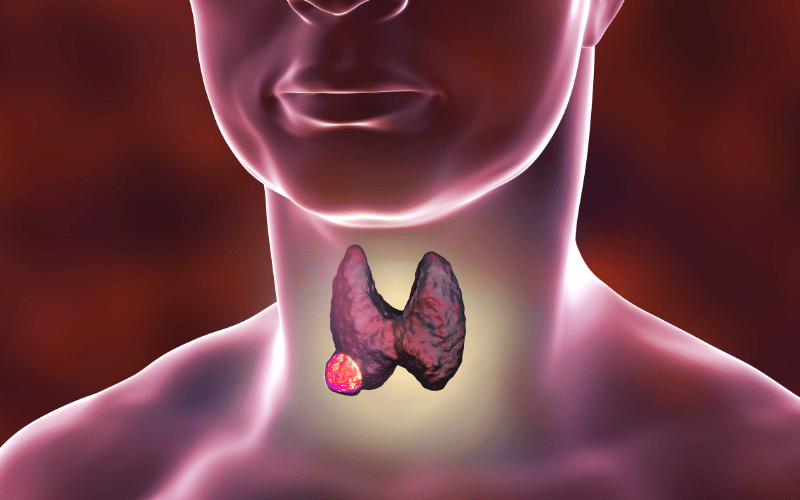Fact 3: Unfolding the Genetic Predisposition in MTC

Diving deeper into the genetics of MTC, you’ll find that it’s not always sporadic. In about 25% of cases, MTC appears as part of a genetic syndrome known as Multiple Endocrine Neoplasia type 2 (MEN 2). This syndrome is inherited, meaning it’s passed down from parents to their children through mutations in a gene known as RET.
MEN 2 further subdivides into MEN 2A and MEN 2B, both of which involve MTC but differ in other manifestations. MEN 2A is typically associated with tumors of other endocrine glands, while MEN 2B is often characterized by additional neuromas and a distinctive body habitus. In these familial cases, MTC tends to occur at a younger age and can even be found in children.
This genetic link has profound implications for the detection and management of MTC. Those who inherit the mutated RET gene have nearly a 100% chance of developing MTC during their lifetime. Therefore, genetic testing for RET mutations is recommended for individuals with a family history of MTC or related conditions. If a mutation is found, preventive (prophylactic) thyroidectomy can be considered to reduce the risk of MTC.
In essence, understanding the genetic predisposition in MTC is crucial. It can inform preventive strategies, guide clinical decisions, and offer a more personalized approach to care. (3)